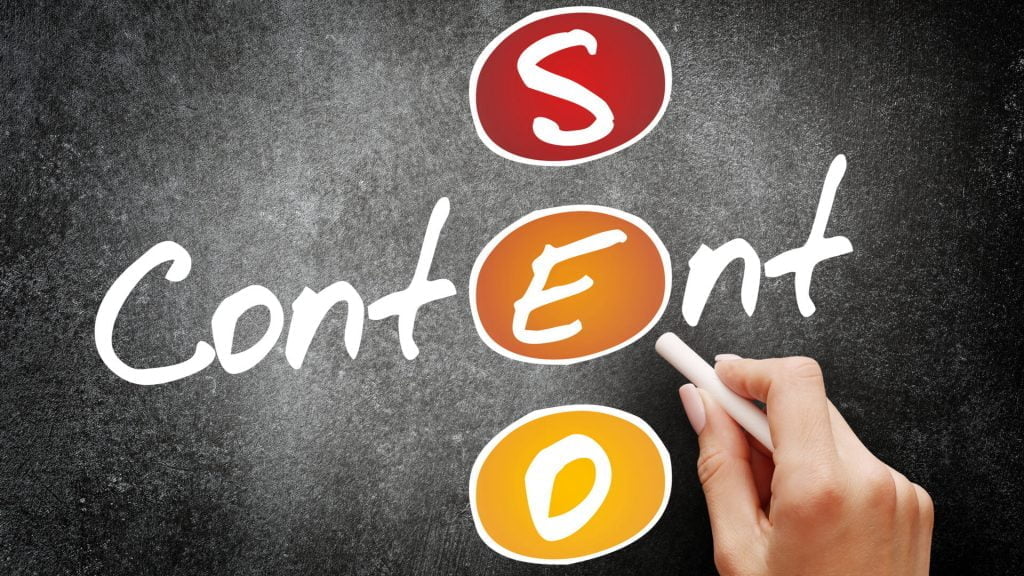It’s no secret that SEO and content marketing complement each other. SEO helps users connect with and discover information about your brand, while content marketing ensures that information is relevant, engaging and primed for conversion.
Just as SEO alone is not enough to guarantee content quality and relevance, content marketing alone is not enough to guarantee performance and results. When the art of content marketing combines with the science of SEO disciplines, marketing success is truly guaranteed.
The convergence of SEO and content marketing has been a topic of conversation for many years, and now the fusion is finally happening. Case in point, BrightEdge (my company) recently surveyed 250 digital marketers from leading global brands and found that 97 percent of marketers surveyed believe that SEO and content have become more integrated and/or are converging into a single function, with only 3 percent viewing them as separate disciplines.
SEO and the science of discovery
Despite how advanced search engine algorithms are today, they still don’t process information in the same way people do. Therefore, it remains crucial to make it easy for search engines to understand every piece of content you publish. Good SEO helps search engines do just that, allowing them to determine whether your content will be the best answer for searchers.
Content marketers must understand and adhere to SEO best practices to avoid causing technical errors, duplicate content or orphan pages. These are just a few issues that can severely impact content performance, driving down traffic, conversions and revenue.
Content marketing and the art of creation
Customers are in charge — and they wield more power than ever. To meet and convert customer demand, it’s up to brands to be visible and persuasive, wowing consumers at every possible micro-moment with amazing experiences.
Content is the key to building these relationships. It should encourage readers to think deeply, and it should invoke emotions. As much as people like to think their choices are based on logic or concrete facts, emotions are also important to decision-making.
People remember experiences — not text. That’s why stories resonate. Creating stories that resonate with an audience is key to content engagement. Consumers must find value in the content you create; otherwise, the time and resources spent are wasted. No amount of optimization will help content that consumers don’t find useful or engaging, so always produce content that offers a unique perspective, inspires conversation, is timely and fulfills a need.
Just as content marketers must understand the technical aspects of SEO, they must also understand and adhere to new creative ways to build and amplify their content, build processes and cultures of content in order to implement integrated and scalable content marketing plans.
Below I share a few important content marketing tips for the traditional SEO marketer:
- Utilize SEO data to see how people engage. Examine how customers consume and engage with your content. Identify what generates interest and results in people taking action. Adjust and optimize content as needed.
- Think about the customer journey. Consider how customers engage with different types of content across channels and devices, at different stages, and in different states of mind. Understand conversion and buying behavior as customers move between devices (smartphones, tablets and desktops), and build your content accordingly.
- Do ongoing customer analysis. What customers are interested in or desire today can quickly change. Perform regular analysis of customer-brand interactions. Listen and gather insights to keep up with the trends. And continue delivering the right experiences through multiple content formats and channels.
- Always be measuring. Set realistic and concrete goals for your content, whether it’s to drive awareness, organic search traffic and rankings, social engagement, conversions or revenue.
Conclusion
SEO is critical to maximize the value of content. The right audience must be able to find the content, and the content must drive business results. Brands that want to deliver richer and more meaningful experiences must learn to fully understand and capitalize upon intent. That means combining search engine optimization and content marketing into one function to produce intelligent content.
In order to do this, SEO and content marketing teams must:
- establish shared goals. Rather than looking at goals specific to just SEO or content performance, come up with clear combined goals — whether it’s conversions, sales or brand lift.
- work as one unit. Agree to an intent-focused SEO and content strategy. Document your plan.
- measure and analyze. Track key metrics and KPIs (e.g., organic search positions and traffic, engagement, leads, sales) that align with your goals and objectives. Place tracking codes on every piece of content available to help identify how, when and why they perform. Use these insights to inform and amplify future search and content.
- continually evolve and adapt your tactics. What works today may not work next year, or even next month.
SEO and content convergence is here — it is up to you to make the most of it.
Some opinions expressed in this article may be those of a guest author and not necessarily Search Engine Land. Staff authors are listed here.

